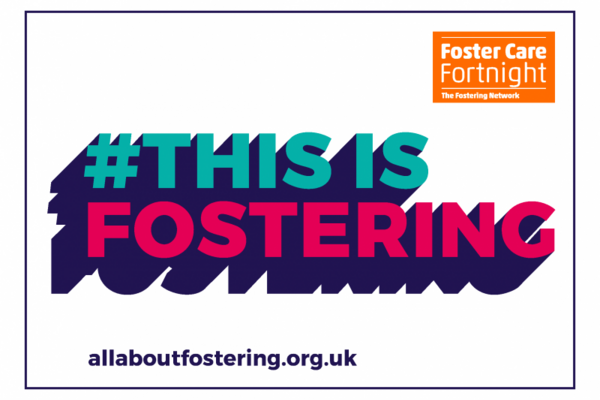In our second interview with foster carer, Michelle, she talks about accepting support to manage the difficult times.
She said that fostering can be “uncomfortable”, but “you must work through your problems, tomorrow is another day, put it to bed, wake up refreshed, you cant dwell on things as it takes over, don’t make decisions when feeling upset”.
She has “tools in the box”, accepts help and guidance, is part of a team and never afraid to say that things are tough. Michelle wonders if sometimes carers see themselves as failing if they ask for help, she described the opposite and the value of sharing worries and concerns to make things better.
Michelle receives fabulous training, her favourite being “Fostering Changes”, a 12-week interactive course, she described it as “totally engaging”. Michelle considers the best part of training is knowing that someone else might have similar experiences and they can talk through their strategies and tips, she talked of the importance of “learning together”. An important aspect of fostering is having “open ears, listening”.
Michelle enjoys interacting with other carers at the agency’s support groups and the foster carers' forum, which provides an opportunity for her to contribute to the development of the agency and share ideas. Sam attends the youth group run by the agency thoroughly enjoying what this offers.
Another string to Michelle’s bow is being the LGBT champion for the agency, she explains that she has friends who were treated very badly, abused for their sexual orientation, gender, and feels passionate that everyone is treated with respect, an equal. Her role includes advocating on behalf of children, reassuring carers who might struggle to understand a child’s experiences. Michelle provides training to the staff, panel members and foster carers. Michelle says she has immersed herself in training and research to ensure she can be as informed as she can be, she is a strong advocate for equality, acceptance.
I wanted to capture Michelle’s three challenges and three positives of fostering …
The first was about lowering expectations, she started her fostering role thinking it was going to always be a fabulous experience, what she was going to do, how she was going to do it. Advice to anyone starting out is “This sets you up to fail. Be realistic, take each day as it comes”.
“Do not try and manage behaviours on your own, don’t exclude family, work out how you can give the same quality time to all children in your care including your own, it is a juggling act to begin with.”
“Initially when friends came around and Sam’s behaviour was different, it felt hard to not break confidence, I felt I was being judged for how I was managing, but I learned to settle my own anxiety around this, never breached confidentiality and developed a thick skin, a resilience, its who he is, I no longer see the unusual behaviours.” I think those of us who have experienced the tantrums of our children on the supermarket floor can all identify with what Michelle is saying, worrying we are being judged as a carer or parent, Michelle’s advice is excellent, we need to stop worrying!
Remarkably all three of Michelle’s positives were about Sam, she is a selfless woman who is immensely proud of Sam, she said...
“10 years of fostering and one child, no matter what life has thrown at me I am still fostering, and Sam is still here, and he wants to be here, he says this is his home, this tops everything”
“Sam’s exam results, I couldn’t have wished for a better outcome”
“The positive contact Sam has with his siblings. We have developed a great relationship with them, and we are part of their family, this has been so positive for Sam and his siblings.”
Michelle’s guidance to anyone considering fostering or to new carers is, “Draw on your strengths, recognise your weakness and if you accept support from those around you, you can develop. I did not have much confidence when I started fostering and felt that I was doing things wrong, but it was my lack of knowledge and understanding that made me feel like this. The training is invaluable, the support is so important. Develop strategies for coping and they will be transferable to managing other behaviours and challenges. Reflect, take the positives and learn from the negative, be honest and don’t be too hard on yourself. I still experience times when workers have had to lift me up a little, don’t dwell, and enjoy fostering and the wonderful experiences it can bring”
Thanks to Michelle for agreeing to speak to my during Foster Care Fortnight, I am sure all agree that she is a fantastic advocate for fostering, she has provided Sam with the most lovely, rich opportunities to be part of her family, and extended family who are very much part of his life. Also, a huge congratulations to Sam for achieving such great things, I wish him well with his future in caring for animals, what a great career choice.
(the name of the child within this article has been changed)
With thanks to Capstone Foster Care





